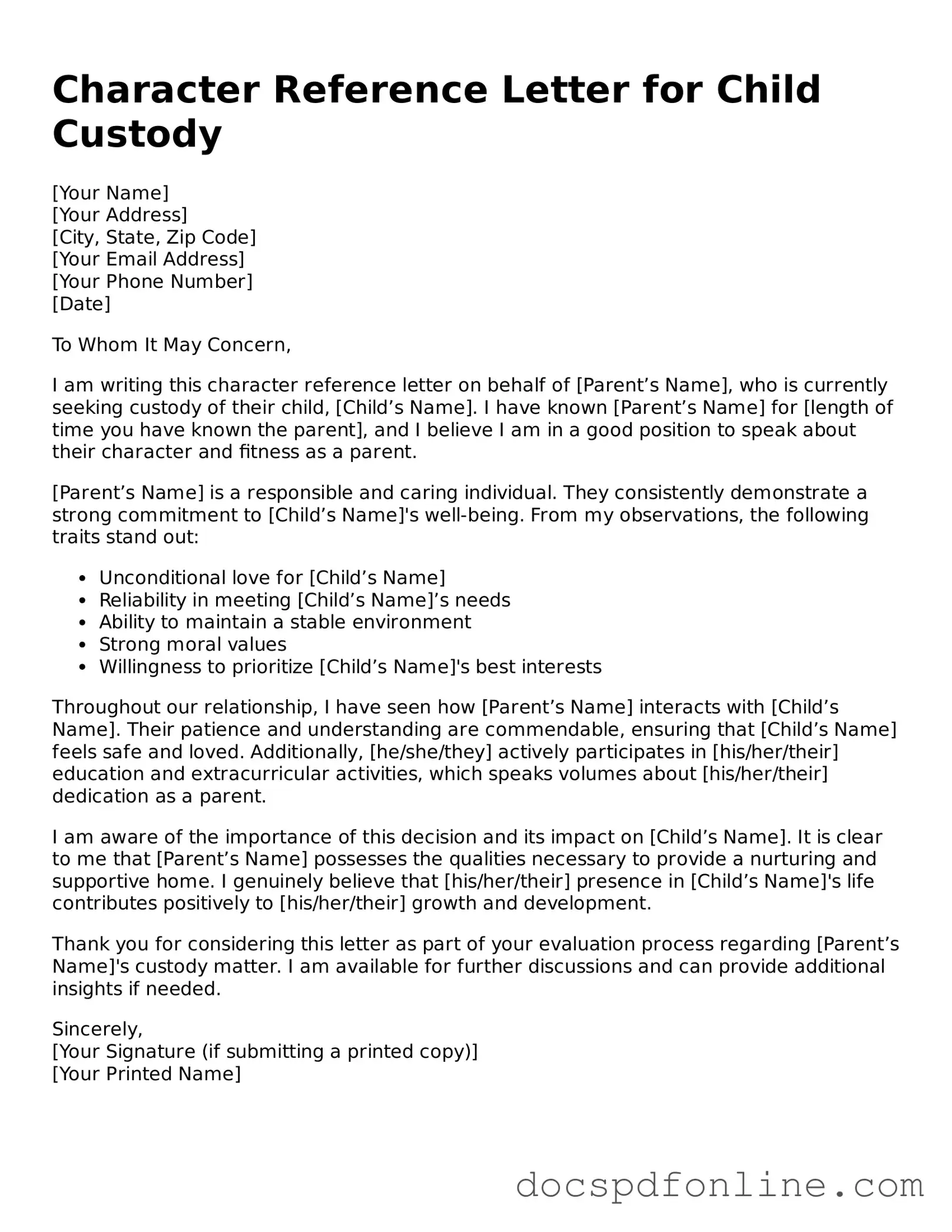Attorney-Approved Character Reference Letter for Child Custody Document
The Character Reference Letter for Child Custody form is a document that provides insight into a parent's character and parenting abilities. This letter can play a crucial role in custody proceedings, as it offers a personal perspective from someone who knows the parent well. By highlighting the strengths and positive qualities of the parent, the letter can help support their case for custody.
Launch Editor Now

Attorney-Approved Character Reference Letter for Child Custody Document
Launch Editor Now
Save time — finish this form fast
Finish Character Reference Letter for Child Custody online — edit, save, download made easy.
Launch Editor Now
or
↓ PDF File
